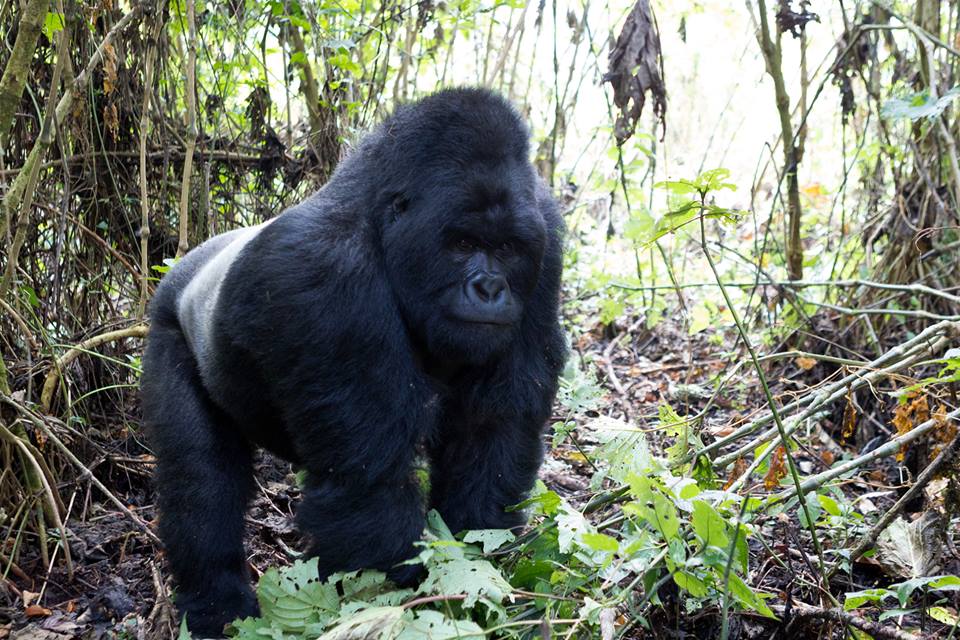McBride’s Bush Camp in the north of Zambia’s Kafue National Park is not the sort of place you visit on the spur of the moment. But if real character, true remoteness and a love of walking with lions are what you’re after, it’s hard to beat. By Peter Frost.
The Kafue cicada ensemble in the jackalberry (Diospyros mespiliformis) was in a frenzy, shrill sopranos destined never to reach their high B crescendo. It was hot work striding through the tall grass with only a dead man’s breath of a breeze to cool things down. We stopped. Twenty minutes into the bush walk along the western bank of the Kafue River, that breath turned foul.
Charlotte McBride was first to detect the smell. She’s one half of the McBride team, Chris’s partner and the chief game locator. She’s extraordinary in the field, with a nose for the hidden and an eye for the unusual.
The stench led us to the decimated carcass of a buffalo cow. Despite the rankness she had only recently been brought down by a pride of lions. Bits of femur, torn from the skeletal frame, lay nearby, wet, broken, black with noisy flies.
“Damn, damn, damn,” the otherwise benign Chris rumbled. “She was killed while we were walking near the pan yesterday. If we’d chosen this side of the river instead of there, we’d have been right on it.”
Barbara and Claude, cammo-clad visitors, seasoned bush lovers but still urbanites, looked up, disappointment and relief written equally large on their faces. But for Chris, an inveterate lion obsessive, it was a deeply disappointing, intensely felt, missed opportunity.
A wild land
McBride’s is lion country, plain and simple. The lions are why Charlotte and Chris moved to this untamed northern stamp of Kafue, and it’s why the world comes to visit.
It’s truly wild. The night before, tucked up in a soft, cotton-rich bed, slow-roasting through the Kafue night, the reed wall of the bungalow had reverberated with the almost plaintive roar of a lone lion, not far away. An echo of challenging roars quickly followed, further to the north.
Grazing hippos, hidden in the dark, responded immediately. Their low-frequency, guttural grunts found each other in the moonlit night, marking their locations, checking on each other in a time of potential danger. Lying in bed in the middle of it all, you feel very privileged, very scared and very aware of your own highly evolved, almost useless body, incapable of competing in this wild arena long vacated by our own kind.
In the morning, we men and women ruled again, feelings of inadequacy forgotten as we got on with the business of being Advanced. The feeling didn’t last much beyond using the flush toilet though, because before breakfast it was walk time again, back into primordial territory we plunged, hairless, small, vulnerable and stripped of technology.
Across the grasslands on the west bank of the Kafue, we walked towards the largest of the nearby pans.
Chris tried in vain to be still, but his excitement bubbled over a number of times, startling grazing puku.
It’s difficult to adequately describe Chris McBride. A refugee from an Edwardian novel perhaps, minus the snobbery, besotted with the bush and lions in particular. His halcyon days were spent studying lions in Timbavati, about which he wrote two books, most notably the well-respected White Lions of Timbavati.
An unconventional camp
McBride’s Bush Camp feeds off Chris’s energy. It is not a conventional kind of energy either, just as Chris is not a conventional sort of man.
The camp itself follows the homely-chic style Chris and Charlotte perfected at Elandsong, their previous lodge on Kyindu Ranch outside Lusaka. It’s down-to-earth and quirky in a practical, very comfortable, appealing way and genuinely inviting. No star-of-the-moment Sandton designer concocted this place. Instead Charlotte McBride has gone to work. Know the woman, understand the style.
Charlotte first appeared to us like something out of Lawrence of Arabia, wrapped in floating cottons from head to toe, double draped in a wet wrap to ward off the intense Kafue heat. No sooner had she appeared than she disappeared again, leaving behind only a strong sense that an important event had just occurred.
Her thatched bungalows consist of a large oblong bedroom/lounge/dressing room, an equally large stoep and – the pièce de résistance – a very spacious, elemental, alfresco bathroom. Step into the bathroom and all that stands between you and those lions is a chest-high wall of reeds. Look around and the McBride touches are everywhere: a warthog vertebra acts as a nifty soap dish; the hog’s skull across the room watches you take off your clothes.
Inside, feathers, ancient leadwood, bits of you’re not sure what adorn the surfaces. It adds up to a far more individual space than you’ll be expecting. No two bungalows are the same.
The biggest television screen ever
In the public areas the individualism continues. Huge, comfy couches covered in African cloth mix with other furniture chosen for comfort rather than label. The whole structure is open to the Kafue River, some distance away. The play with inside/outside is very effective; you’re sunk into a sitting room settee watching hippos on the widest television screen ever.
And so it goes at McBride’s. Dawn patrols, dusk adventures, sleep, eat and wallow in between. The river flows by eternally and once in a while you take to it in the camp’s riverboat.
Cutting quietly through the crystal clear river, you get to observe submerged hippos from the roof of the riverboat. The fat fleetfoots are surprisingly quick and agile. It’s another special sight in this special wilderness. Indeed, Kafue seems to specialise in them. You won’t want to go back to your own kind.






